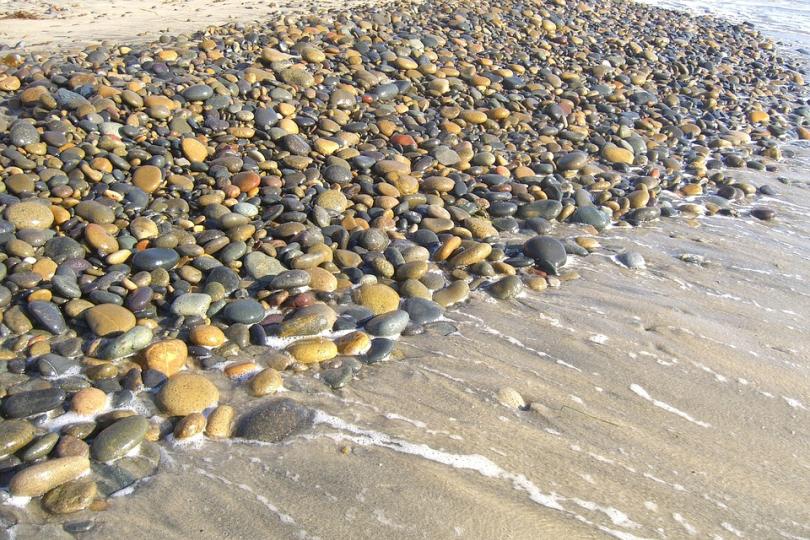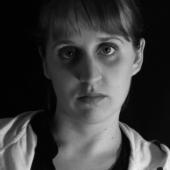Pickles, Pigs and The River of Time

This winter, my little ping pong ball did not make the Minnesota Fringe lottery. I was drawn thirty-fourth on the wait list, so I figured my odds were pretty good of getting that last minute email. And sure enough, on June 21st, that email came and I jumped into the 2017 festival.
After the website went live, I got a message from playwright Deborah Yarchun. We'd met several years ago when we both had plays in Strange Sun Theater's Greenhouse in New York. Since then, we've switched places; I moved from Connecticut to Minnesota, and she's moved from Minnesota to Brooklyn. And we once again find ourselves in the same festival. But not only that, we've both gotten in off the wait list, within a few days of one another, we've both written solo shows, and they're both based on true stories about women competing in a state fair.
Yarchun's show, A Pickle, presented by Really Spicy Opera, follows a strong willed woman named Doris whose traditional kosher pickles are rejected by the Minnesota State Fair for “looking” spoiled. My show, Queen of Delicious Animals, follows my misadventures as a child livestock showmanship champion in the California State Fair. Both seem to tell stories of tenacity, chutzpah, and the idiosyncratic worlds of small competitions, be they pickles or pigs. But what are the odds that both shows come off the wait list and end up in the 2017 Fringe?
Seeing Double
It happens more often than you would think. Last year, there were two ensemble shows based on personal testimony about experience with abortion: Red Letter Society's The Abortion Chronicles and Constructed Theater's When She Became Me: a pro-choice play about abortion. In both 2008 and 2009 there were shows written by local playwrights about men falling in love with chairs: Deaf Blender Theatre's That Chair Was My Wife written by Raymond Luczak and Action Theater Project's Yvette, written by Gemma Irish.
When asked to speculate on what drove both playwrights to explore the unusual theme of man on chair love, Irish replied “I truly have no idea!” Stating from such a heightened place can lead to greater depths. “Both shows were, of course, not really about furniture but about the intricacies of human desire,” Irish said. “Taking an idea to an extreme or seemingly absurd place is one way of breaking open our assumptions.”
2010 was a banner year for Fringe Doppelgangers, as veteran Fringe reviewer Matthew Everett noted on his blog, citing two George W. Bush shows, two Twilight spoofs, and, improbably, two shows about the myth of the selkie – seals who turn into women.
Playlist's own Derek Lee Miller was in the ensemble of one of the seal-women shows, Transatlantic Love Affair's debut production The Ballad of the Pale Fisherman. “We thought it was pretty cool,” Miller said. “As with any folklore, you can't really claim an exclusive right to it. I mean, 'folk' is right there in the title. It's supposed to be for everybody to use it.”
No New Ideas
Given the entropy of the Minnesota Fringe lottery, these coincidences are bound to happen, but given the sheer volume of ideas and concepts that exist in the world, it's a bit surprising when it does. It feels a bit like an omen, a twist in the entrails that portends something important, something meaningful.
Or maybe we've got our odds wrong. Maybe there isn't a boundless pool of ideas and concepts to pull from. The notion that there are no new ideas has been floating around through our culture since we first had ideas.
For Miller, this is hardly a bad thing. “All of culture is a remix and a refinement of what came before it. The folksinger/storyteller Utah Phillips once described time as 'an enormous, long river' that we are all standing in and that we all contribute to. The people who come after us can dip into that water and take from it what they need for their time and then let go of what they've made for someone else to pick it up downstream.” It makes these sorts of coincidences marvelous. “Way back when, someone dropped the idea of the selkie into that river and two different groups of people found that shiny pebble at the same time,” Miller said. “That's pretty amazing.”
Mark Twain picked up a similar pebble from the river of time, declaring new ideas impossible. “We simply take a lot of old ideas and put them into a sort of mental kaleidoscope. We give them a turn and they make new and curious combinations. We keep on turning and making new combinations indefinitely; but they are the same old pieces of colored glass that have been in use through all the ages.”
The tornado of art that is the Minnesota Fringe Festival is a tremendous time. For ten days, hundreds of artists descend on the city and turn our mental kaleidoscopes over and over again. Each whirl of colors and shapes is a new opportunity to see something you've never seen before, and will probably never see again. Theater is ephemeral, but ideas endure. And sooner or later, someone will pick up the kaleidoscope again, and give it another turn. I can't wait to see what Deborah Yarchun and her team do with the colored glass, and I hope you get the chance to see it too.




